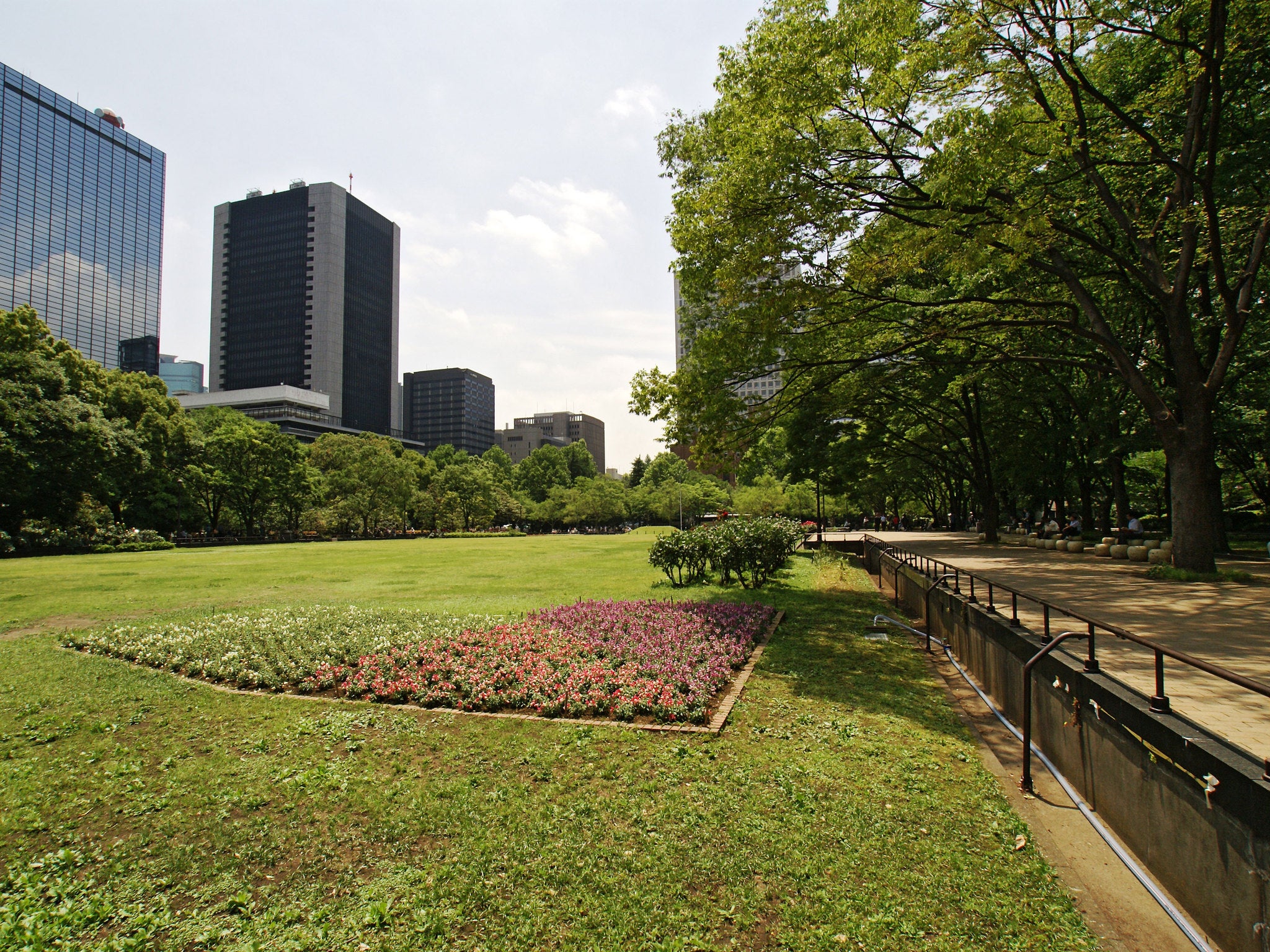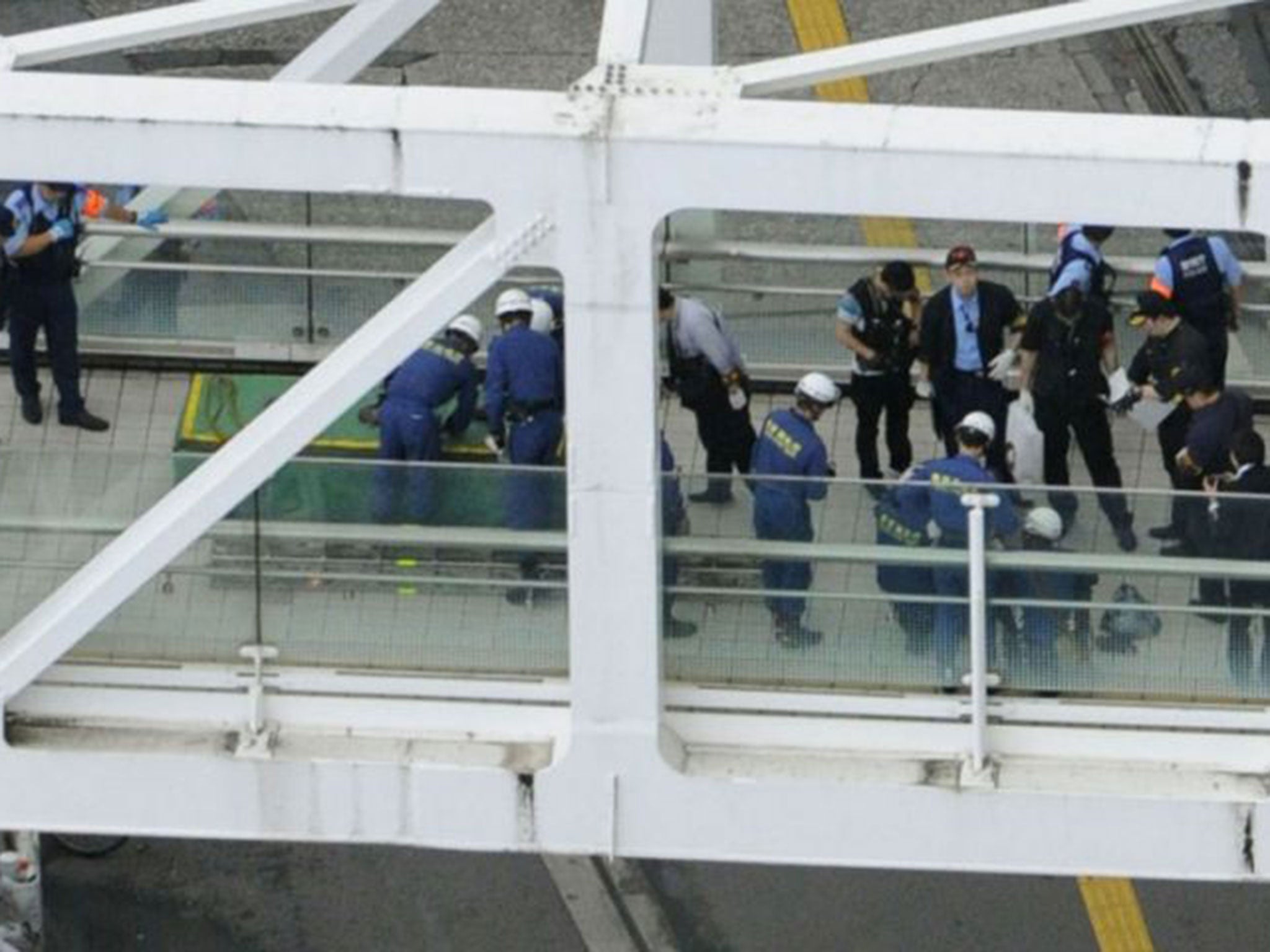Japanese man sets himself on fire in Tokyo park to 'protest against change in military law'
The man left notes condemning Japan's new 'right to collective self-defence'

Your support helps us to tell the story
From reproductive rights to climate change to Big Tech, The Independent is on the ground when the story is developing. Whether it's investigating the financials of Elon Musk's pro-Trump PAC or producing our latest documentary, 'The A Word', which shines a light on the American women fighting for reproductive rights, we know how important it is to parse out the facts from the messaging.
At such a critical moment in US history, we need reporters on the ground. Your donation allows us to keep sending journalists to speak to both sides of the story.
The Independent is trusted by Americans across the entire political spectrum. And unlike many other quality news outlets, we choose not to lock Americans out of our reporting and analysis with paywalls. We believe quality journalism should be available to everyone, paid for by those who can afford it.
Your support makes all the difference.A Japanese man has died after setting himself on fire in what appeared to be a protest against a change in military policy.
The unidentified man filmed the self-immolation on a set up video camera in Tokyo’s central Hibiya Park, near Government buildings, on Tuesday.
He was taken to hospital by ambulance shortly before 7pm local time but could not be saved.
Notes addressed to the Prime Minister, Shinzo Abe, and parliamentary leaders were found near the burning body, according to the Asahi Shimbun newspaper.
Investigators told the newspaper the notes lambasted the Japanese Cabinet’s decision in July to approve the national “right to collective self-defence” after decades of restrictions since the Second World War.
Japan’s military was previously allowed only defend its own territory – a provision that was not unpopular among much of the population – but a re-interpretation of the constitution now lets the country to defend its allies abroad.

Mr Abe had lobbied for the change, insisting it was a “strictly defensive measure” which would not lead to involvement in multilateral foreign wars, like the US-led invasion of Iraq.
The constitutional shift sparked significant opposition and protests numbering thousands of people, angering China and South Korea, but supporters argued that the restrictions were an outdated relic imposed by the US that deprived Japan of basic rights exercised by modern nations.
Tuesday’s suicide was the second attempted self-immolation by protesters against the change.
In June, a man on a pedestrian bridge near Shinjuku Station in Tokyo doused himself in petrol and set himself alight after shouting through a microphone to denounce the government’s push for collective self-defence.
He was badly burned but survived the incident days before the constitutional change was approved.
Additional reporting by AP
Join our commenting forum
Join thought-provoking conversations, follow other Independent readers and see their replies
Comments